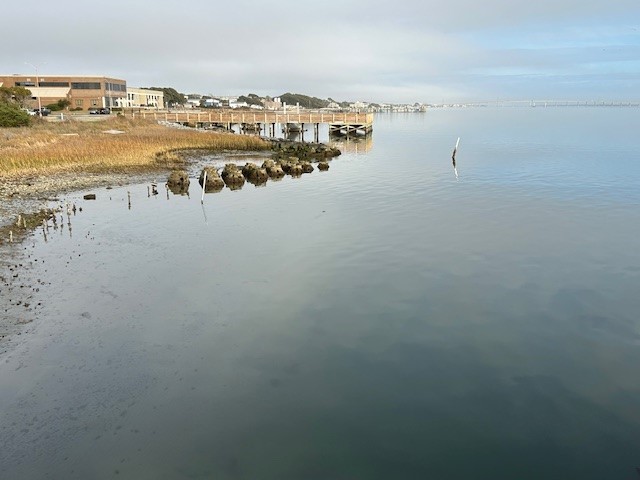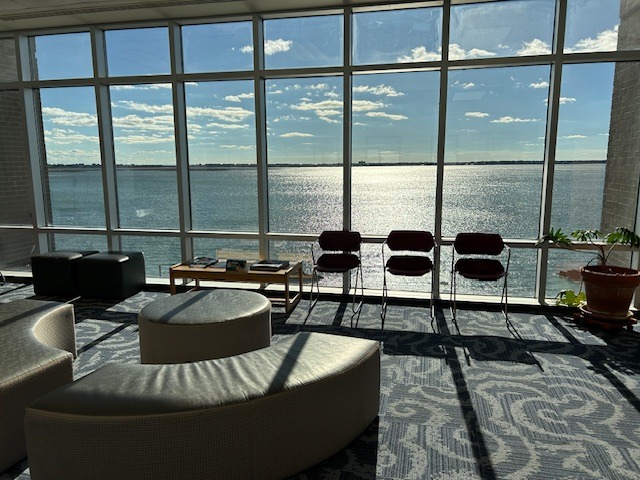Along the southeast coast of North Carolina, overlooking Bogue Sound and the barrier island of Bogue Banks, is the town of Morehead City, the home of Biota’s newest and smallest marine ornamental fish hatchery. It’s become known, unofficially, as Biota NC and it represents a public/private partnership between Carteret Community College and The Biota Group. Carteret Community College is a two-year college and trade school that serves Carteret and surrounding counties by providing extremely affordable two-year degrees with simple transfer paths to universities across the state, as well as certificates in a variety of trades, including aquaculture, boat building, culinary arts, and welding. The Biota Group, as you probably know if your reading this, is a world leader in the production of marine ornamental species with production facilities in Palau and Hawaii. Like Biota NC, the Hawaii facility represents a public/private partnership between The Biota Group and an academic institution: Hawaii Pacific University.

Carteret Community college on Bogue Sound
The benefits of this type of partnership are numerous and the arrangement looks something like this: Biota rents space within the college aquaculture lab and employs myself and several of my students and former students to culture marine fishes and invertebrates. Biota gets a good deal on rent and utilities, as well as a dozen or so additional species to offer to customers; the aquaculture program gets the benefit of having all aspects of production underway at all times (a feat that’s nearly impossible to pull off following the schedule and budget constraints of a typical school); all of our aquaculture students get to witness complete life cycles of every species we produce; students who are interested can get experience working for Biota through internships or actual employment; and the world’s oceans get a little more relief from the pressures of wild collection. Another relationship that benefits all of us is this: NC State University leases the building right next door where they operate the Center for Marine Science and Technology (CMAST). Students in their veterinary program who are specializing in aquatic and marine life have access to a wide variety of species in our aquaculture lab, and in return, we get free help troubleshooting disease problems when they arise.

The view of Bogue Sound from the CMAST building
Historically, most of the students enrolled in our program came to us with the intention of starting an operation for growing oysters or some other food species, and whereas that’s still true, we are starting to see a shift in interest towards marine ornamentals. We are also starting to get more students who dream of working for a public aquarium. An aquaculture degree is an incredibly valuable asset for that career path for two reasons: 1. Although most public aquaria advertise position requirements along the lines of: “degree in biology, marine science or a related field”, in an aquaculture program, there is a very heavy emphasis on water quality, building and maintaining aquatic systems, and health and nutrition of aquatic animals. 2. Many public aquariums are making in-house breeding programs a higher priority and the skills required for breeding aquatic animals are not well covered in a typical marine science or biology program.
Biota NC got its start producing just a few high-value species of fish, but as we grow and expand into new species, we are moving into production of many of the cleanup-crew species offered through the Biota Group. These include peppermint shrimp, tuxedo urchins, and Berghia verrucicornis, the Aiptasia-eating nudibranch. Although not as valuable as some of our fish, the demand for these species is enormous and it’s all we can do to keep supplies up.
Over the next year, I hope to post a series of updates on some of our new and ongoing projects at Biota NC. Stay tuned!










So informative and well written, Todd Gardner! Now I can better understand why you spend so much time in your big fish room with all those big tanks, at your own home! And that a power outage can be a potential disaster! And this doesn’t even include all the time, talent and passion that goes into the program at your college! You just might be one of the smartest humans I know! ( FYI) 😊🧠🐠
Well written and informative. Glad to know about this program and the potential for strategic collaboration between universities and commercial aquaculture companies. I look forward to seeing more of these pop us, as I’ve heard many students lack these practical skills simply because facilities/opportunities don’t always exist within the institution.